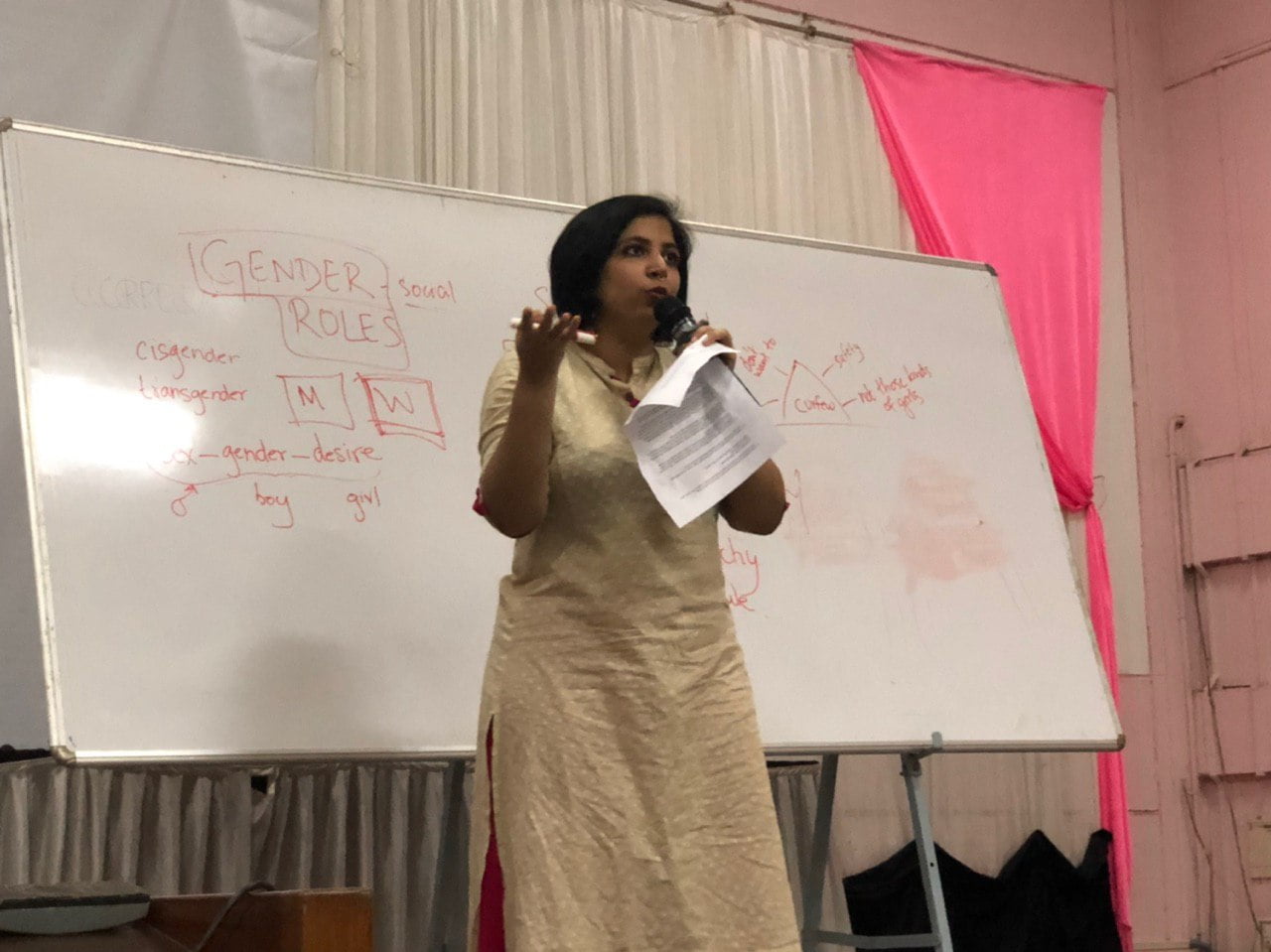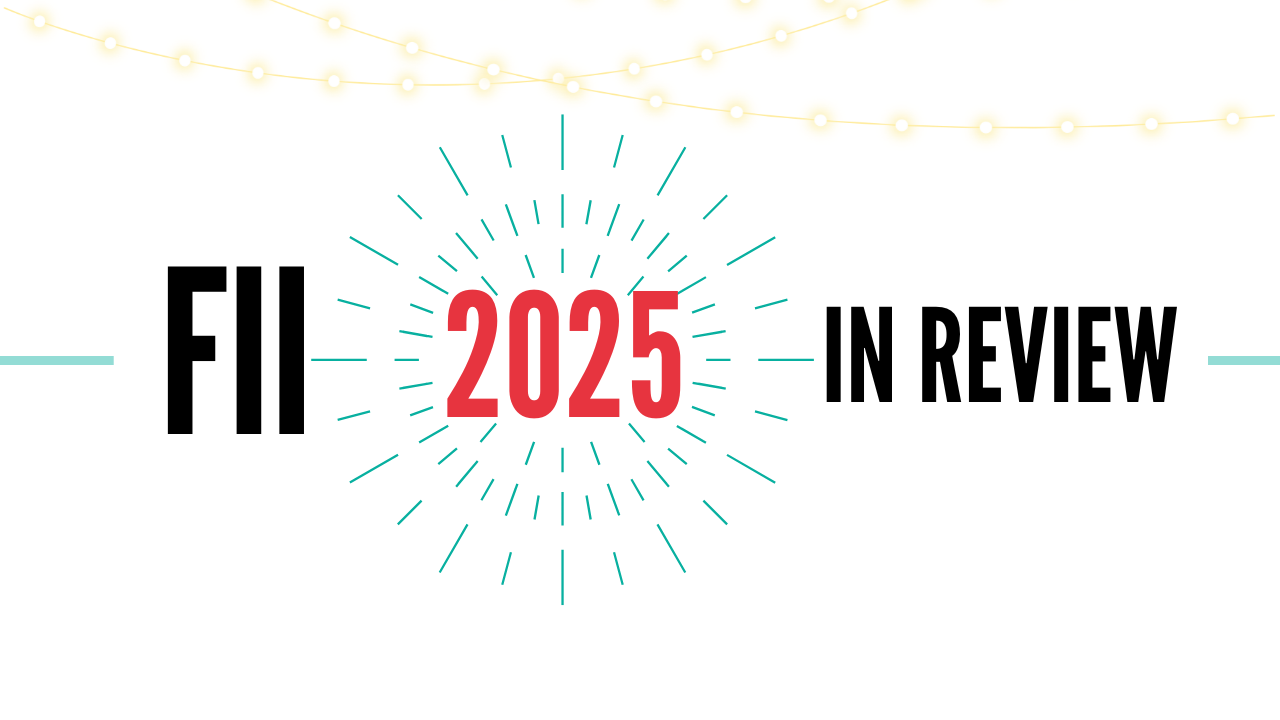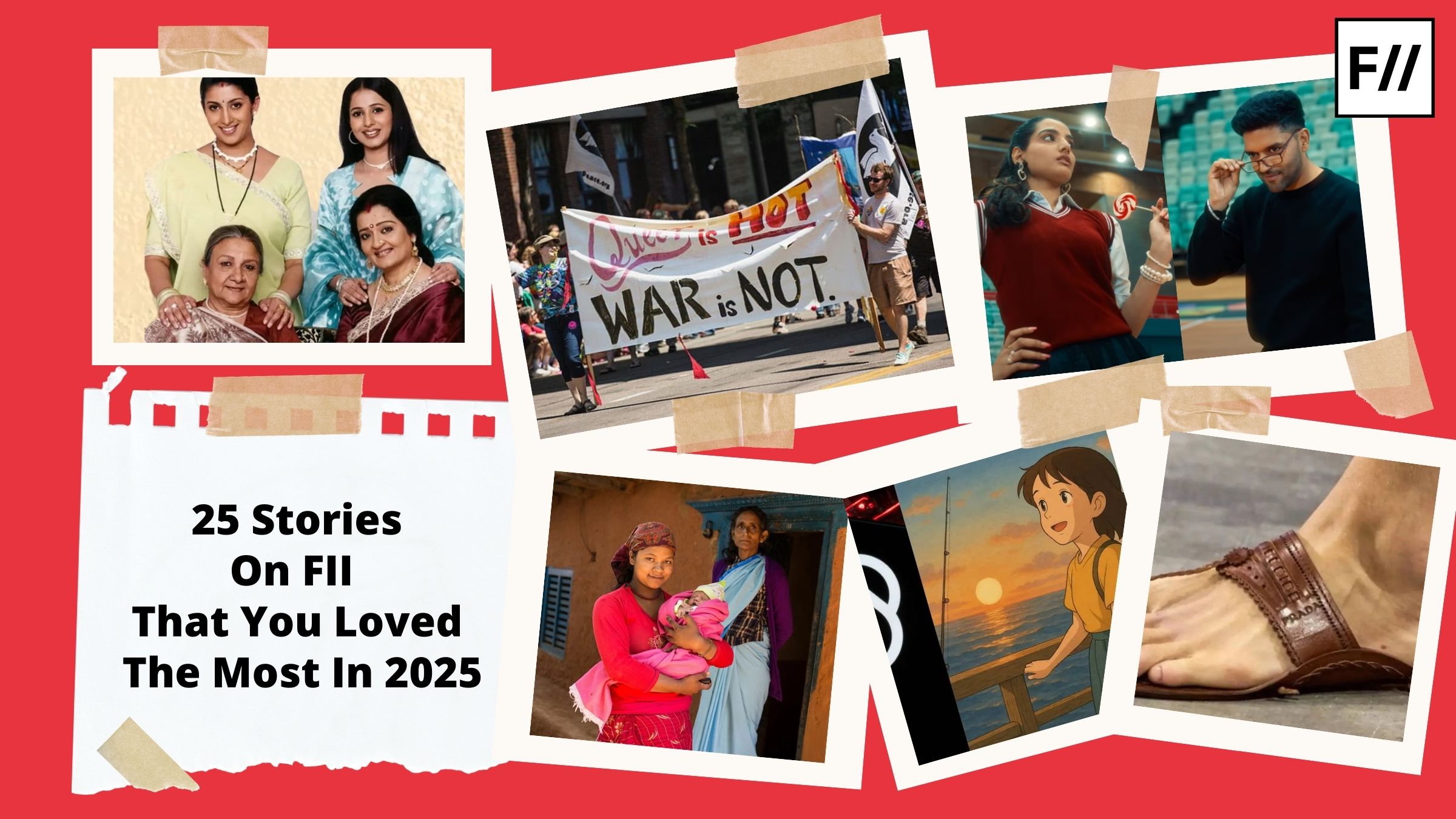On 18th February 2019, FII Campaign Manager Asmita Ghosh spoke about the fundamentals of feminism, patriarchy and gender norms at a three hour workshop at NIT Calicut. The workshop was designed to demystify the word feminism, and help students relate the term to their personal experiences and relationships. It was attended by 50-60 students from the engineering college.
The workshop began with a basic understanding of the differences between sex and gender, and how the latter was a social construct, and went on to discuss the massive impact that gender norms had on all of us. Students spoke about the ways in which they had felt constrained by their gender, and how they had seen gender roles play out in their families. While women had many instances to share, we also delved into the way that patriarchy negatively affects men and imposes strict standards of masculinity upon them.
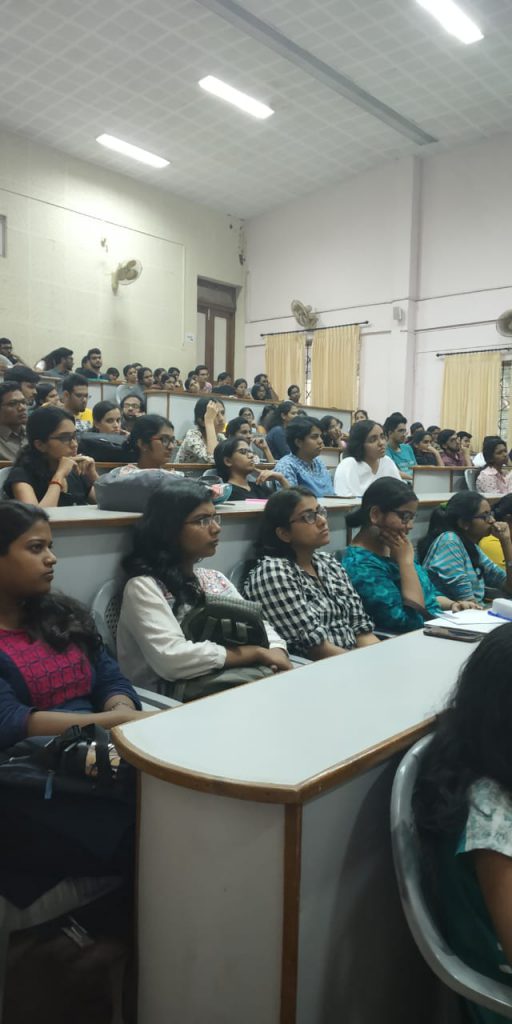
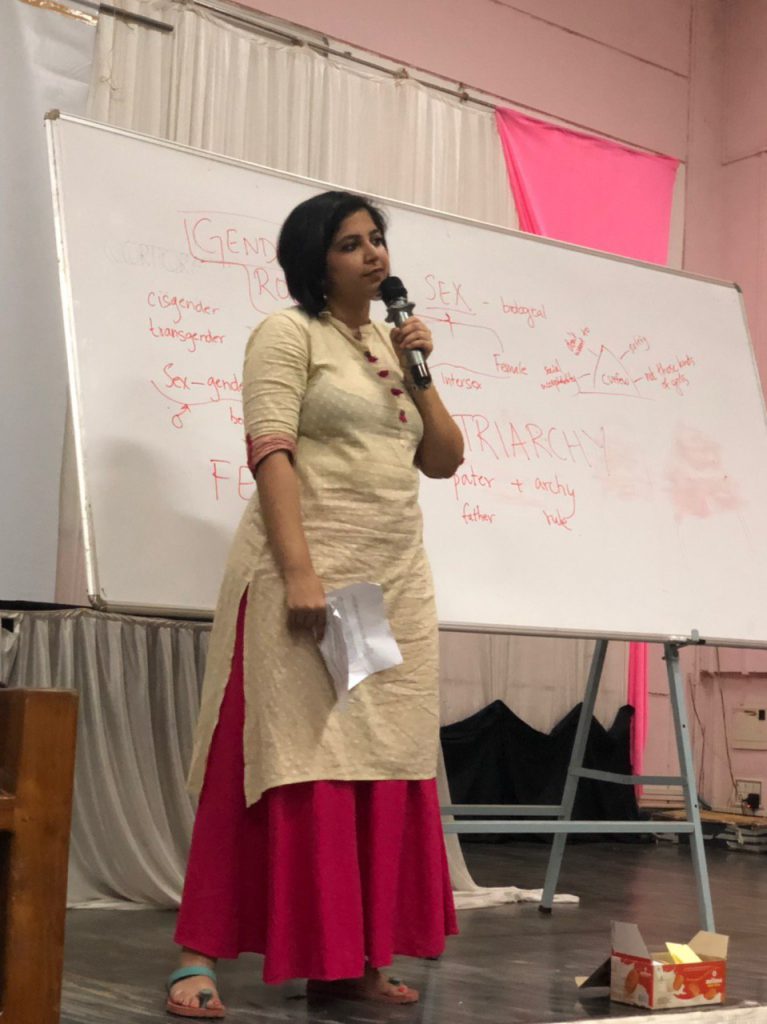
We discussed the many unseen factors that contribute to patriarchal notions disguised as established “truths”, such as “women aren’t athletic”, or “women are not good at math”, such as the lack of opportunities given to women, the lack of existing role models and the internalisation of such sexist thought that leads many women to believe that they cannot be athletic, or good at math. Drawing a direct parallel to goings on in their own university campus, students spoke about the concerns of safety that were used to justify having a hostel curfew imposed exclusively on women, but not on male students.
The direction of the workshop then drifted naturally into patriarchal control on women’s mobility, sexuality and choices, and how the safety argument often obscures its patriarchal underpinnings. Students opened up about the many ways this control was enforced upon them, or in their families and relationships. One student spoke about how his father had prevented his mother from driving, despite her getting a driving license. Another spoke about how she had been forcibly married off to a man, despite the fact that she had been in a relationship with someone else. Yet another spoke about how he was treated with much more lenience at home than his older sister, and was asked to accompany her in public places for her “protection”, despite the fact that she was the older of the two.
Many students used post-its to write out their struggles with patriarchy – especially ones that they did not want to speak out publicly – and these many experiences of patriarchal control were displayed on a student board on campus on the days following the workshop.
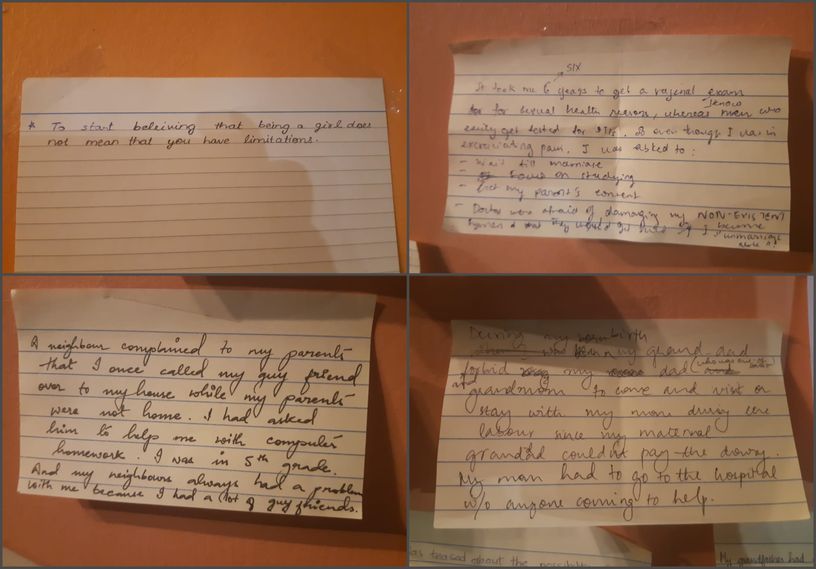
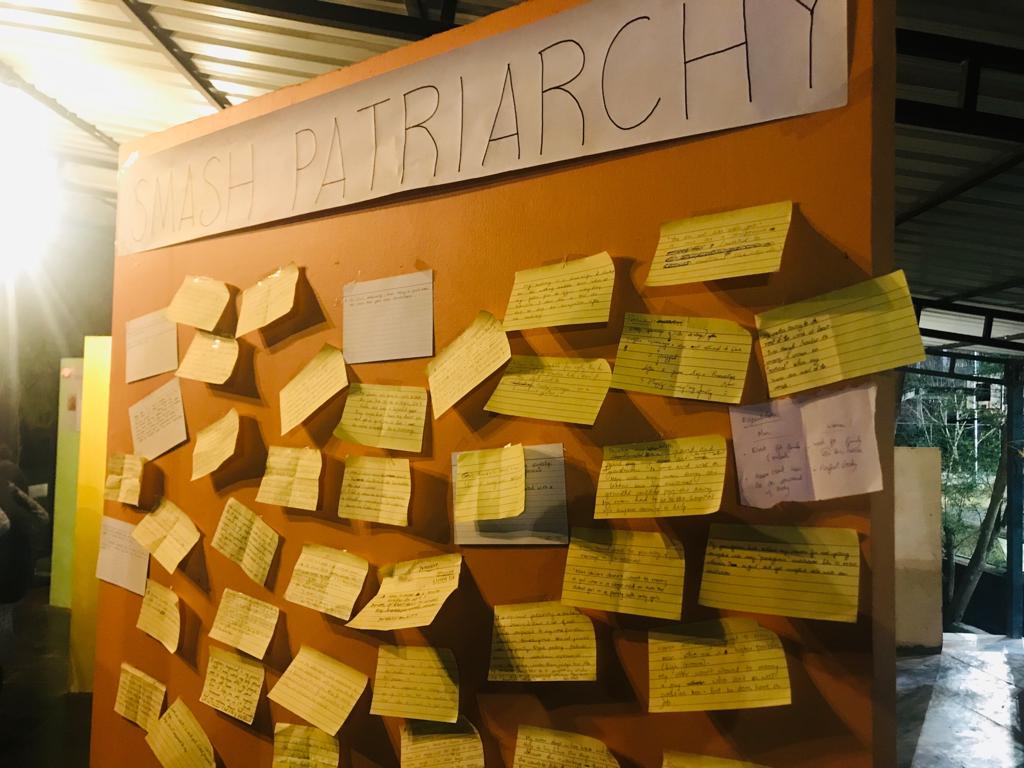
Using the many male students that attended the workshop as an impetus, we then spoke about privilege, and the importance of acknowledging it and using it to help achieve equality. Taking the fight for equal curfews as an example, we spoke about how male students could aid the struggle without eclipsing or sidelining the role of women.
The workshop wrapped up with an in-depth explanation of intersectionality, and how the struggle for women’s rights could not be divorced from the struggle for LGBTQIA+ rights, Dalit rights, disability rights, etc. Women students were encouraged to reflect on their own privileges of caste, religion or sexual orientation, and how to be more inclusive in the struggle for women’s rights.
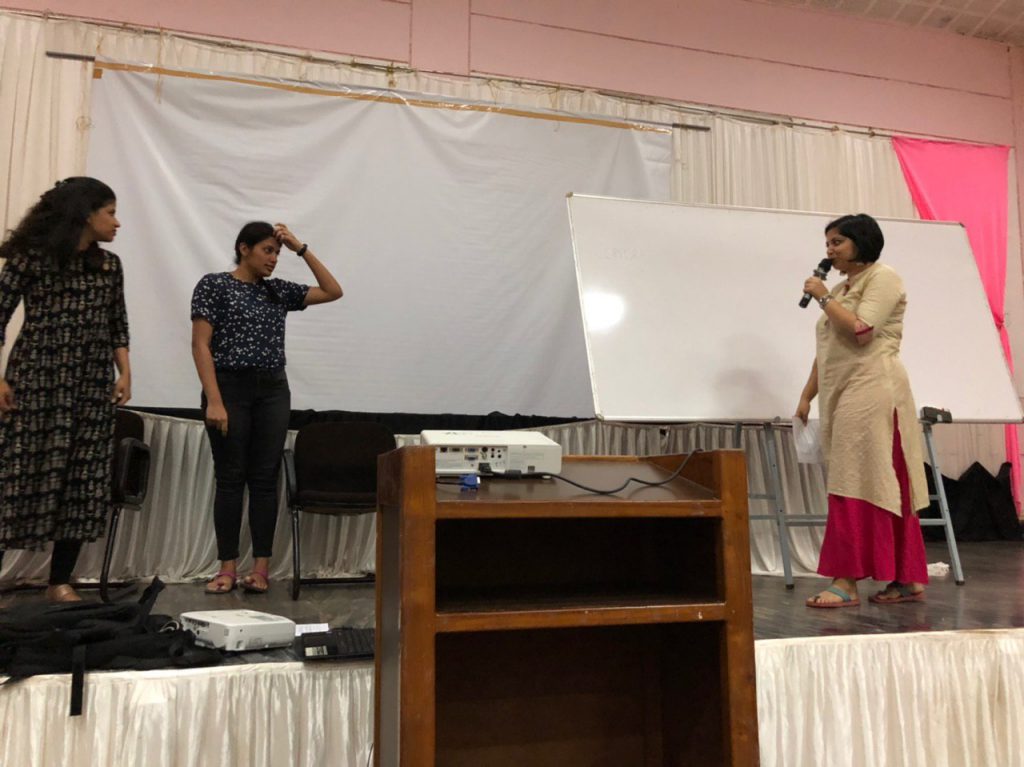
Here are some things that students who attended the workshop had to say!
“When I first heard of the “Feminism101” workshop to be conducted by Asmita Ghosh, I wasn’t very keen on going. I believed that I already had read up enough on the topic, and having considered myself a feminist for so long, I doubted I would gain any new knowledge. Additionally, having seen the way people on campus reacted to the word “feminism”, as if it were a joke or assumed it meant “female supremacy”, made me feel that this campus was not the place to have a discussion on the topic. I went reluctantly and thought I’d leave after half an hour. But I stayed till they very end. Even though I thought I new enough about words like patriarchy, solidarity, toxic masculinity, intersectionality and rape culture, the speaker was able to explain these things with further clarity. She was able to engage the audience and created a platform for everyone to speak up. I heard from both men and women, how they have suffered from patriarchy, how they themselves helped propagate patriarchy and how they wanted to break free. It was a constructive discussion that touched upon the topics of representation and the importance of privilege. She said that privilege, may it be in terms of gender or caste, gives you access to new circles of people that gives you renewed opportunity to tackle patriarchy. She briefly explained the origin and history of the feminist movement and how “intersectionality” is central to this movement. She talked of toxic masculinity. Just as women are forced to fit into boxes of societal norms and culture, so are men. I was very happy with the workshop because not only did the speaker talk about topics that needed to immediately addressed, she was able to create a platform for many students to speak up. This is important when dealing with a social issue, especially one as far reaching as patriarchy. “Feminism 101” is not solution to patriarchy. But it certainly opened up a discussion on what feminism means and gave a means to address it and fight for it. Which I believe as far as first steps go, it was a pretty big one.” – Krishna Pillai, 4th year, Civil Engineering Department
“The workshop, first basically touched upon a few terms and it’s definitions. She tried to clear all the misconceptions about feminism. Through small examples, she tried to point out the difference with which society views men and women. Then, she encouraged all of us to talk about small instances of patriarchy that we see around us. A lot of people spoke, shared their experiences. It was great hearing from people and most importantly, the experiences that the men in the group spoke about gave me a new perspective to think about. It was a new experience. So many women in campus, coming together and sharing their views and thoughts.” – Neelima John, 4th year, Computer Science Department.
“I had an extremely pleasant experience attending the FII workshop by Asmita Ghosh on February 18th. In three hours, she walked us through the whole issue of gender inequality and how feminist movements are integral to tackle the blatant patriarchy on the which our society revolves upon. A lot of students shared their experiences of having been subjected to gender inequality. I feel the success of the workshop can be attributed to the ability of the speaker in invoking audience participation. I was able to share my experiences and could also relate a whole lot with what others spoke. I felt that the NITC hostel authorities should also have been invited for the talk.With the current issue of hostel curfew and forceful implementation if biometric system doing rounds,the concerned authorities should be sensitised on this matter.On the whole,the workshop was very productive and worth every second I attended it.” –Neena Regi, 4th year, Chemical Engineering Department.
If you would like to invite FII for similar workshops in your academic institution or workplace, please email us at asmita@feminisminindia.com.
About the author(s)
Feminism In India is an award-winning digital intersectional feminist media organisation to learn, educate and develop a feminist sensibility and unravel the F-word among the youth in India.
